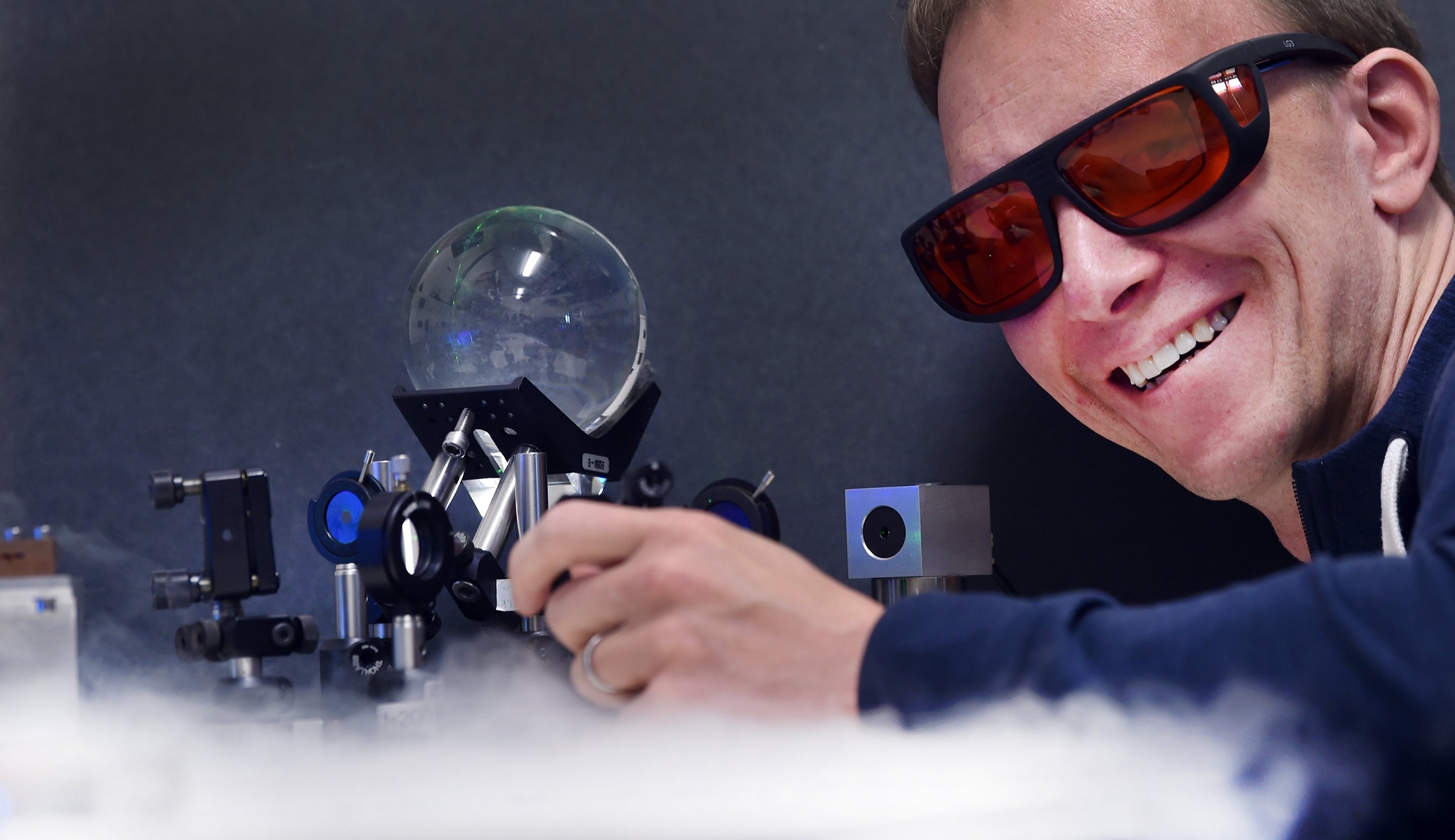
The University of Otago Dodd-Walls Centre for Photonic and Quantum Technologies researcher is working to create a room-temperature link that can connect two quantum computers.
If successful, it would be a first that could "change the world".
The problem is, quantum computers typically operate at extremely low temperatures — nearing absolute zero (-273.15°C).
"A hat and a coat are not going to help keep you warm in this area," he said.
"Fortunately, the cold part only happens in a space that is smaller than a shoe box, so it’s a good thing that you wouldn’t fit in there."
Associate Prof Schwefel said quantum computers required cold environments because they relied on delicate objects called quantum bits, or qubits.
Most qubits must be cooled to within a few thousandths of a degree of absolute zero to eliminate thermal noise and vibrations, which tend to destroy the information contained in the qubits.
He recently received a Google Academic Research Award, worth $82,000, and is the only New Zealand-based researcher to receive the award.
"Currently, quantum computers exist but they are not really that useful because the number of qubits is limited to maybe 1000, and there are very few problems that you can use it where it really has an impact.
"But if we had 10,000 or more of these qubits, you really can do very useful things."
If quantum computers could be connected, that would give him access to more qubits, he said.
At present, the quantum computers developed by Google and IBM cannot be linked with each other because they operate with quantum information in the form of microwave photons.
"Such microwave photons have so low energy that they cannot survive at room temperature and must live in cool environments.
"By converting the microwave photons into optical photons that can travel in optical fibres, just like the classic internet does, quantum computers could be connected.
"We believe that we now have the technology at hand to build a device that achieves 80% conversion efficiency, which is suitable for a quantum link.
"That would change the world."
There is global competition to develop quantum computers at scale and network them, like the internet.
Quantum computers could solve certain problems at an unprecedented speed and would transform how we use technology.
Ultimately, they could be used to create better models for how atoms interact with one another, leading to a superior and more precise understanding of molecular structure.
This may directly impact drug and chemical research and impact the way new products and medicines are developed.
It could also be used to decipher complex cryptographic codes.
Assoc Prof Schwefel was delighted with the Google funding and said it acknowledged Otago University’s leadership in this domain.
"It also shows that New Zealand hosts excellent science that can perform well on the international stage."













